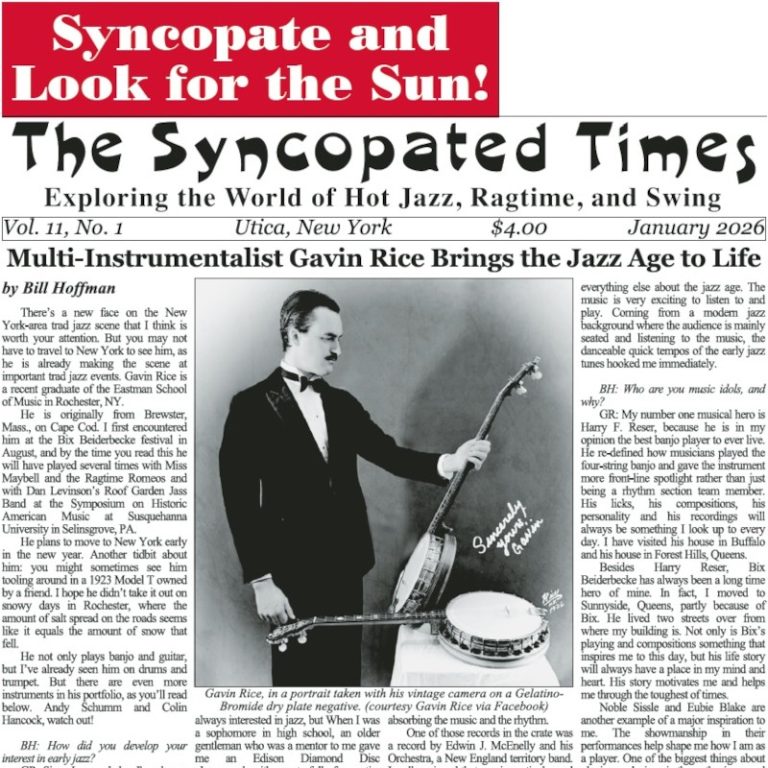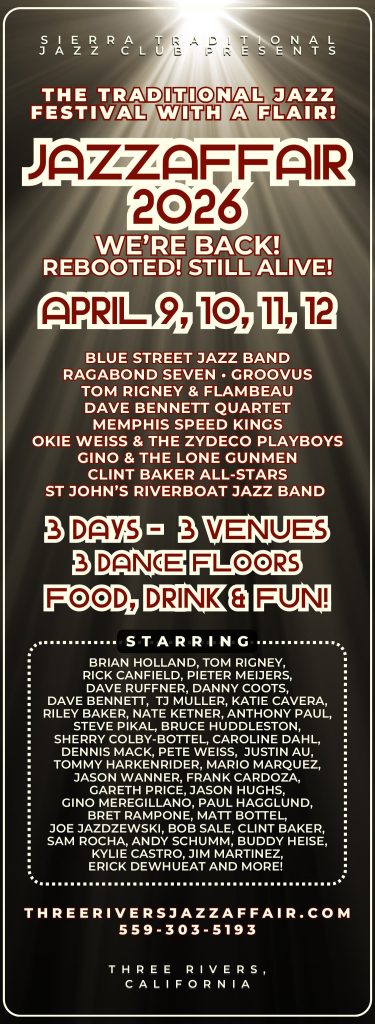While the names “Wally Fawkes” and “Ian Christie” are well-known in UK trad jazz circles, they are probably not so well-known in those here in the US.
Wally Fawkes (d. 2023) was a “man of parts,” being a fine caricaturist under the pen name “Trog” (an abbreviation of ‘troglodyte,” in turn an allusion to his time spent in underground air-raid shelters during World War II), and known for his cartoon character “Flook” as well as his political satires. His cartoons appeared in The Daily Mail and The Daily Mirror, and he drew for The Observer, The Sunday Telegraph, Punch, The Spectator, and The New Statesman, among others.
He was also a fine clarinetist and soprano saxophonist, self-taught, playing in his time with many bands, including one of the original UK trad bands, George Webb’s Dixielanders, of which he was a founding member. He was also a founding member of Humphrey Lyttelton’s band, and he formed his own band, The Troglodytes, after leaving Lyttelton. Later he joined John Chilton’s Feetwarmers and on many occasions rejoined Lyttelton. He also was a member of Graham Tayar's Crouch End All Stars. On this CD he plays soprano sax most of the time.
Accompanying Fawkes in heading up the sextet on this CD is Ian Christie (d. 2010). Like Fawkes, Christie was a member of the Humphrey Lyttelton band, in which his brother, Keith, was playing trombone. Lyttel
You've read three articles this month! That makes you one of a rare breed, the true jazz fan!
The Syncopated Times is a monthly publication covering traditional jazz, ragtime and swing. We have the best historic content anywhere, and are the only American publication covering artists and bands currently playing Hot Jazz, Vintage Swing, or Ragtime. Our writers are legends themselves, paid to bring you the best coverage possible. Advertising will never be enough to keep these stories coming, we need your SUBSCRIPTION. Get unlimited access for $30 a year or $50 for two.
Not ready to pay for jazz yet? Register a Free Account for two weeks of unlimited access without nags or pop ups.
Already Registered? Log In
If you shouldn't be seeing this because you already logged in try refreshing the page.




